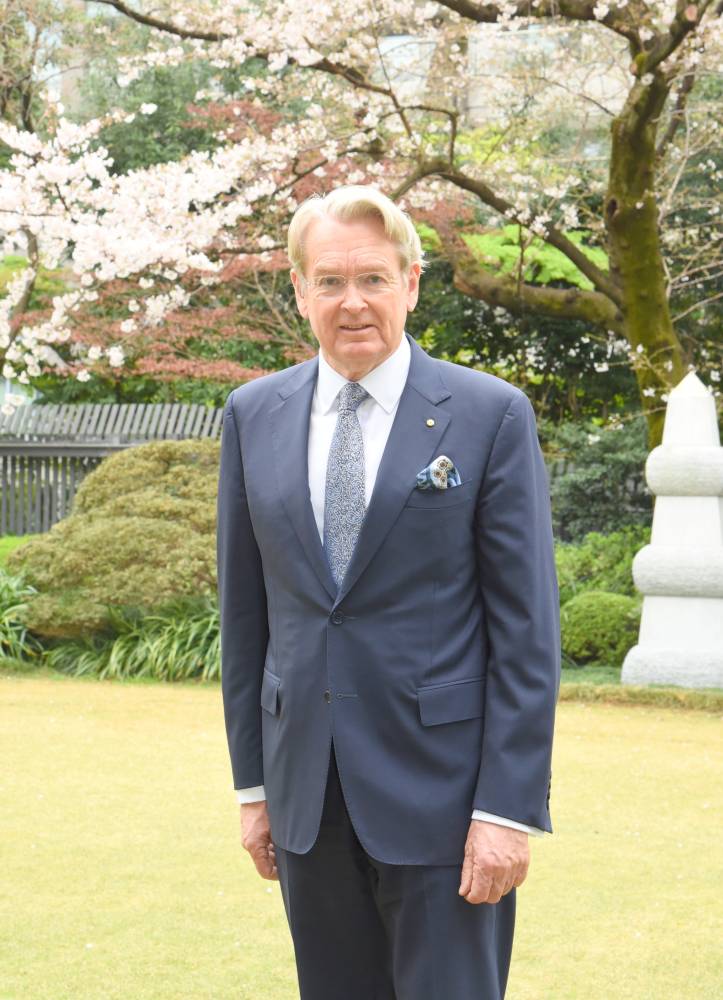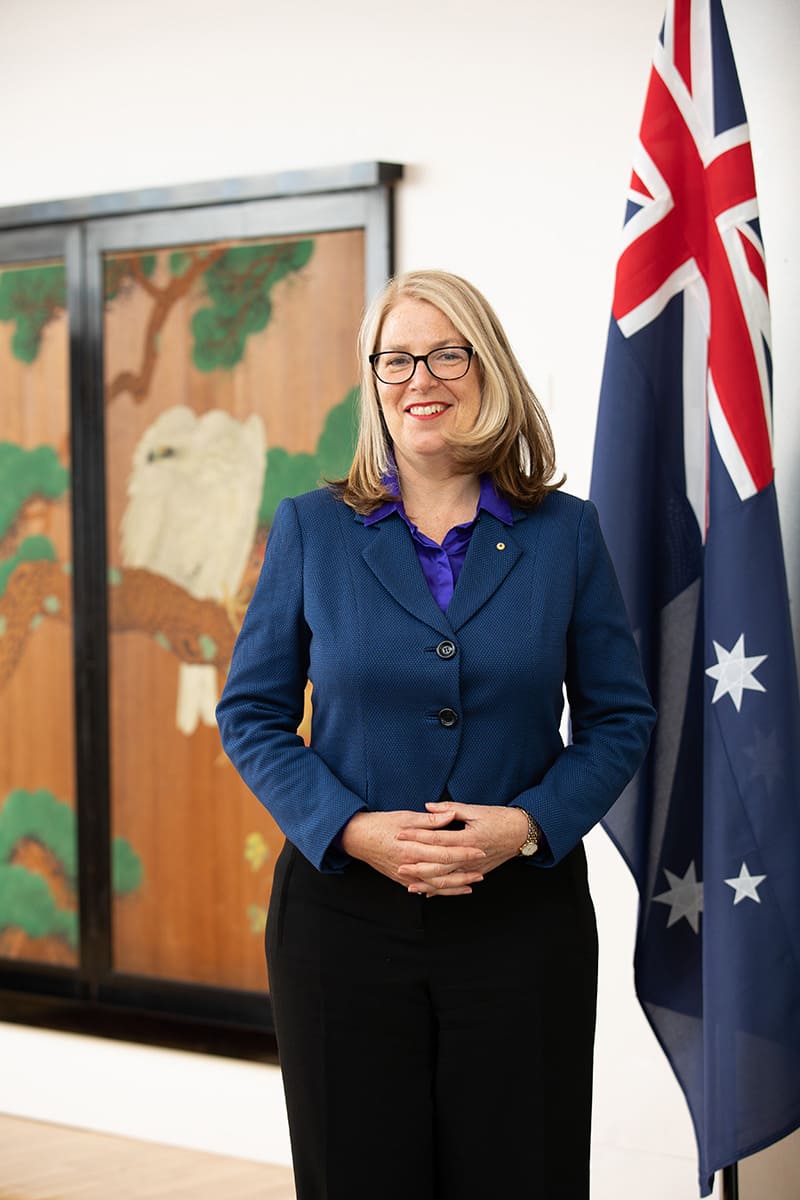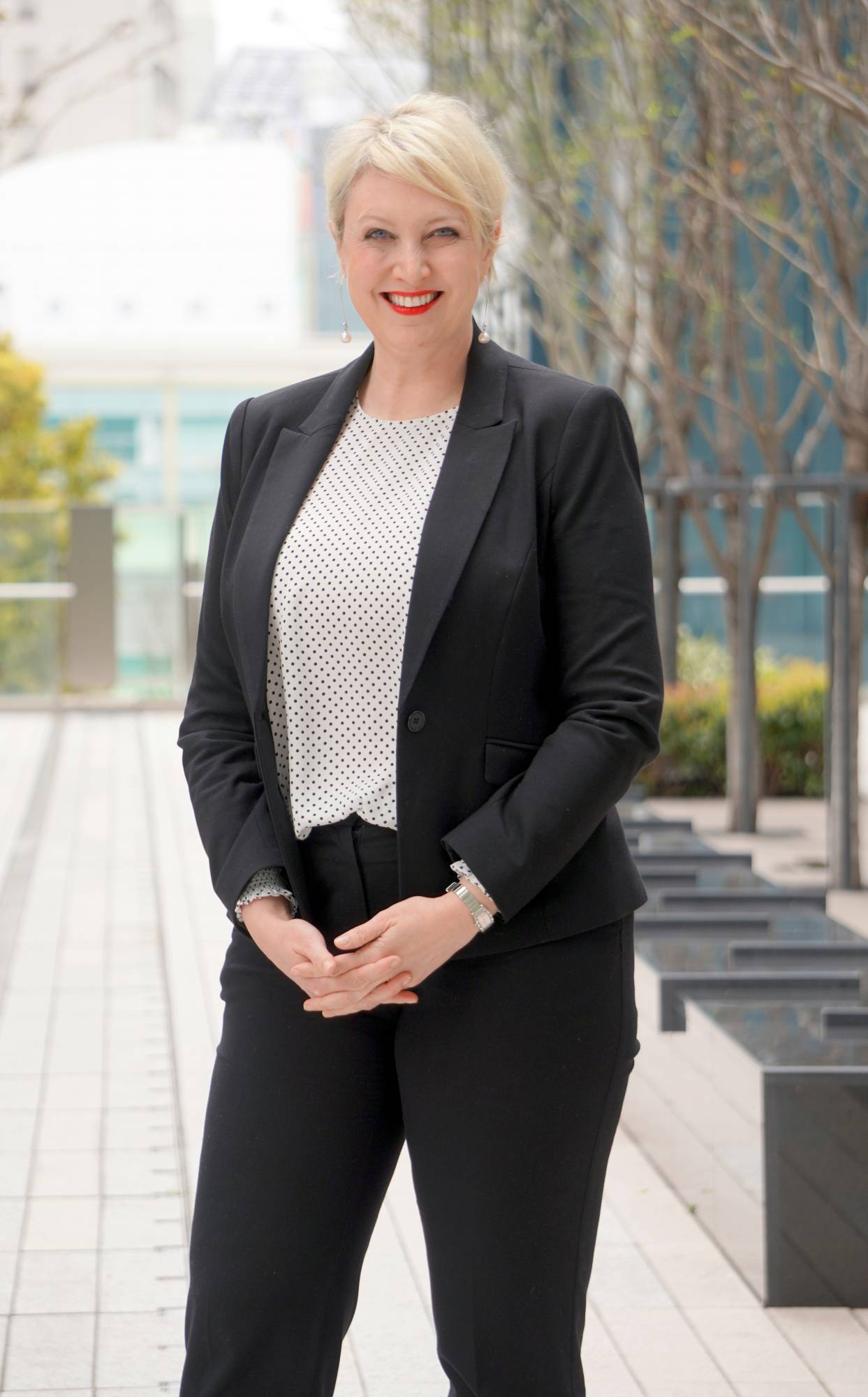
April 05, 2020
Hopes firm for continued partnership amid COVID-19
Ambassador Richard Court reflects on his and Australia’s ties to Japan
BY JANE KITAGAWA
CONTRIBUTING WRITER
- Name: Richard Court
- Title: Ambassador of Australia
- URL: https://japan.embassy.gov.au/tkyo/home.html
- DoB: Sep. 27, 1947
- Hometown: Nedlands, Western Australia
- Years in Japan: 3
A sailing enthusiast, Australian Ambassador Richard Court can sometimes be found at Enoshima Yacht Harbor or the Hayama Marina, indulging in his hobby and love of the ocean.
“I love the smell of the water,” he said, reminiscing how growing up in Perth near a river and the sea helped shape his childhood. “I was one of five brothers and we used to build our own racing yachts in our back shed. So later in life it was not surprising that we established a boating business.”
“I think Enoshima, where the sailing Olympics are going to be held, and the facilities there are world-class for yachting (and) very similar to sailing off Fremantle in Western Australia,” said Court.
Speaking with The Japan Times on the day when Australia, alongside Canada, withdrew from the 2020 Tokyo Olympics and Paralympics before Japan and the International Olympic Committee later announced the event’s postponement, Court remains upbeat. He sees the eventual running of the games in Tokyo as an opportunity for the world to celebrate recovery and team efforts in handling the COVID-19 pandemic.
“Whenever the Tokyo Olympics are held, it will be a great unifying event globally. … I think the Olympic movement will be a very important component of rebuilding confidence after the world has handled this COVID-19 crisis,” Court said.
Court is a former politician, most famously serving as premier and treasurer of the state of Western Australia between 1993 and 2001. However, he also brings a wealth of private business experience to his current role. He often traveled to China, South Korea and Japan, mostly dealing with energy and resources — coal, iron ore and liquefied natural gas — during the 16 years after he left politics and before becoming ambassador.
Despite frequent travel to Japan, living here has been a pleasant surprise for Court and his wife, partly because of the country’s efficiency and infrastructure — “It just works.”
The ambassador’s relationship with Japan began when he was growing up in the 1950s. His father, also a politician, had entered the field at a time when Western Australia was formulating strategies to develop mineral resources for export to countries such as Japan.
Court recalled Japanese businesspeople visiting his family home to negotiate iron ore agreements between Western Australia and Japanese steel mills. “As a teenager, we had many Japanese coming to Perth and our home. The reason they would come to our home is that Perth (then) didn’t have many hotels,” he said with a chuckle. “By the time I went into politics in the 1980s, Japan was an established part of the economic life of Western Australia.”
In 2008, Court was awarded Japan’s Order of the Rising Sun, Gold and Silver Star for his contributions to the expansion of Australia-Japan relations, strengthening economic ties and also to exchanges between Hyogo Prefecture and Western Australia.
While most Australian ambassadors are career diplomats, Court defends the occasional political appointment.
“I think it’s healthy from time to time to have political appointments come into the system. … I’ve had political experience and I’ve had private sector experience. I think if you can share some of that experience inside an embassy, that’s helpful,” he said.
Court considers politics tough and brutal, particularly in a “true democracy” as “You’ve got to have a thick skin.” Conversely, he thinks politics is also a rewarding and honorable profession where in times of genuine crisis, governments, opposition parties and countries tend to put aside their differences.
“Never in our postwar history has it been more important that countries cooperate and collaborate, as we address this COVID-19 crisis in what’s now become a very interconnected world,” said Court.
“I think this COVID-19 crisis is a test for civil societies. Governments around the world are having to be very flexible and move very quickly in how they control the situation and in their environment. I think we are so fortunate that the Australia-Japan relationship is as strong as it is,” he said.
For Court, Australia and Japan’s relationship is a particularly mature one.
“We have incredible trust and respect … that enables us to work together and to share information to help each other. Certainly, in these times, that is invaluable,” he said.
Japan’s assistance during Australia’s devastating bushfires is one example. “We had extreme bushfires in all states and the Japanese government, when they saw what the situation was, immediately offered to send two C-130 transport planes down along with 71 personnel to assist in firefighting activities,” said Court, describing how the planes were able to move necessary heavy equipment from one crisis area to another. Collaborating when the Diamond Princess was in quarantine to ensure the health and safety needs of the ship’s roughly 230 Australian passengers was another incident that leaned on the strength of the partnership, Court said. “The clinical care that our 47 hospitalized Australians received was excellent.”
While public health challenges are a crucial aspect of the COVID-19 pandemic, the associated economic risks are very much on Court’s mind.
Court sees future opportunities for Australia and Japan to provide needed infrastructure in developing countries across the Indo-Pacific region or collaborating on children’s health research — a cause dear to his heart.
“Australia and Japan are two trading nations; Australia supplies a third of all Japan’s energy requirements, half of the minerals needed and a lot of food. … Similarly, we rely on a wide range of products coming in from Japan,” he said. “Japan’s been a very strong investor in Australian industry. Although there’s a health aspect to consider, we have to also work out how we can best keep those commercial wheels turning during these challenging times.”
Roles span politics and private sector
Richard Court is a former politician who was elected to the Western Australia legislative assembly in 1982 and later served as premier and treasurer of Western Australia from 1993 to 2001.
He has held a number of senior positions and directorships in the private and public sectors at organizations as diverse as Resource Investment Strategy Consultants, the Anglican Diocesan trustees and the Olympic Team Appeal for Western Australia.
In 2003, Court received Australian Day honors and was appointed a companion in the General Division of the Order of Australia for services to Western Australia and the indigenous community in particular. This included cultural heritage and economic development through negotiating major resource projects.


















